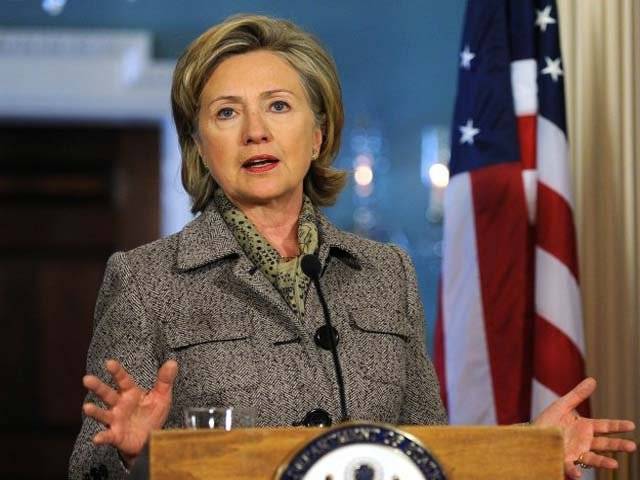U.S. security depends on a new approach to international aid, so Washington must consult more and dictate less as it dispenses billions of dollars in assistance, U.S. Secretary of State Hillary Clinton said on Wednesday. "In the past we have sometimes dictated solutions from afar, often missing our mark on the ground," Clinton said in a speech. "Our new approach is to work in partnership with developing countries." Clinton's speech at a Washington think-tank marked the Obama administration's latest effort to persuade the U.S. public that development aid is a foreign policy tool as important as defense and diplomacy. But while the U.S. remains the world's largest individual aid donor -- with almost $27 billion disbursed in 2008 -- critics worry the administration may be slow to follow through on promises to boost funding and improve work at the U.S. Agency for International Development (USAID), the main U.S. government aid organization. Security moved back to the top Washington's agenda this week as President Barack Obama came under political fire after a failed Christmas Day bomb attack on a U.S.-bound airliner and new al Qaeda threats against U.S. interests in Yemen. Clinton said aid efforts in places such as Afghanistan and Yemen -- where she conceded the odds of success were long -- were critical components of security strategy. "We cannot stop terrorism or defeat the ideologies of violent extremism when hundreds of millions of young people see a future with no jobs, no hope, and no way ever to catch up to the developed world," she said. Both Clinton and Obama have in recent months sketched out new priorities for U.S. foreign policy, including a pragmatic approach to human rights in countries such as China and Obama's defense of "just wars" in his acceptance speech for the Nobel Peace Prize in December. But Clinton left no doubt on Wednesday that international assistance -- and a new, higher profile for USAID under newly appointed administrator Rajiv Shah -- would be central to Washington's new approach. "Development was once the province of humanitarians, charities, and governments looking to gain allies in global struggles. Today it is a strategic, economic, and moral imperative," she said. Clinton said the United States would put new emphasis on partnership, coordination with other aid donors and focus on key areas such as health, agriculture, security, education and governance in hopes of maximizing returns. U.S. aid programs will also focus on programs to assist women and girls -- a key area of interest for Clinton, who lost her bid in 2008 to become the first woman elected president of the United States. "Women and girls are one of the world's greatest untapped resources and a terrific return on investment," Clinton said, noting that in many communities women take the lead in growing food, caring for the sick and raising the next generation.
Friday, April 26, 2024
Unemployment must end in order to eradicate terrorism: Clinton

Petrol, diesel prices set to fall in Pakistan
April 26, 2024
DC for action against fake, intoxicated drugs manufacturers
April 26, 2024
Commissioner for better traffic management
April 26, 2024
WUM faculty member awarded Quaid-e-Azam Gold Medal
April 26, 2024
Musk vs Australia
April 25, 2024
Reforming Rehab
April 25, 2024
Tax It Right
April 25, 2024
Academic Uprising
April 24, 2024
Cooperation Momentum
April 24, 2024
Ending animal suffering
April 25, 2024
AI governance
April 25, 2024
AI concerns
April 25, 2024
Population paradox
April 24, 2024
Unveiling differences
April 24, 2024
ePaper - Nawaiwaqt
Advertisement
Nawaiwaqt Group | Copyright © 2024





